
Playground Equipment for Early Childhood Education
Whether you're outfitting a daycare, preschool, or kindergarten, the right playground equipment is essential for fostering an environment of growth and fun. Our playground equipment is designed for young learners, offering various interactive and durable solutions for your school or daycare. We offer a variety of play structures, swings, slides, and activity centers that encourage children to explore, socialize, and develop their motor skills. Explore our range to find the perfect match for your educational setting.
Our Playground Equipment Collection
Discover a wide range of playground equipment designed to meet the needs of every play environment. Each piece, from slides and swings to climbing structures and interactive play zones, is crafted for safety, durability, and fun. Our varied selection ensures that you’ll find the perfect fit for schools, parks, and recreational areas, enriching children’s play experiences and fostering physical and cognitive growth.
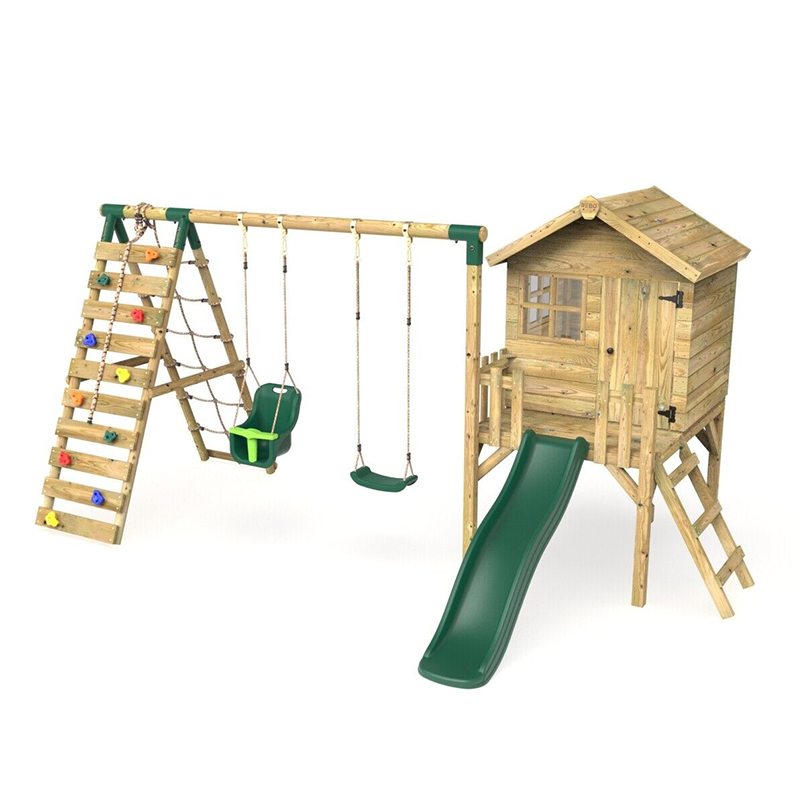
Wooden Playhouse & SwingsRock Wall Deck
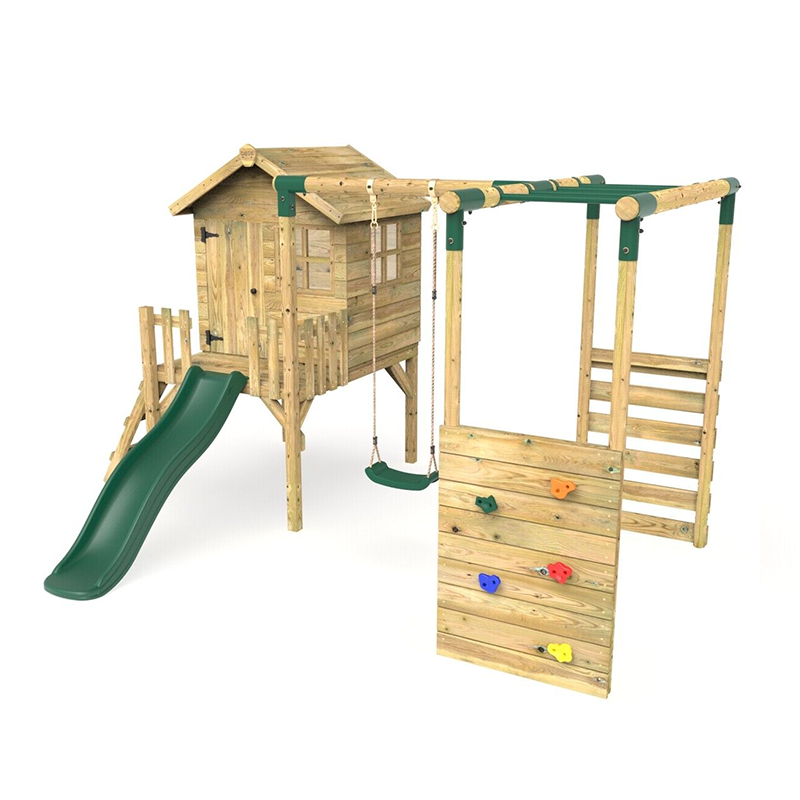
Wooden Playhouse Swings Monkey Bars Deck

Plum climbing clearance

kids wooden climbing frame
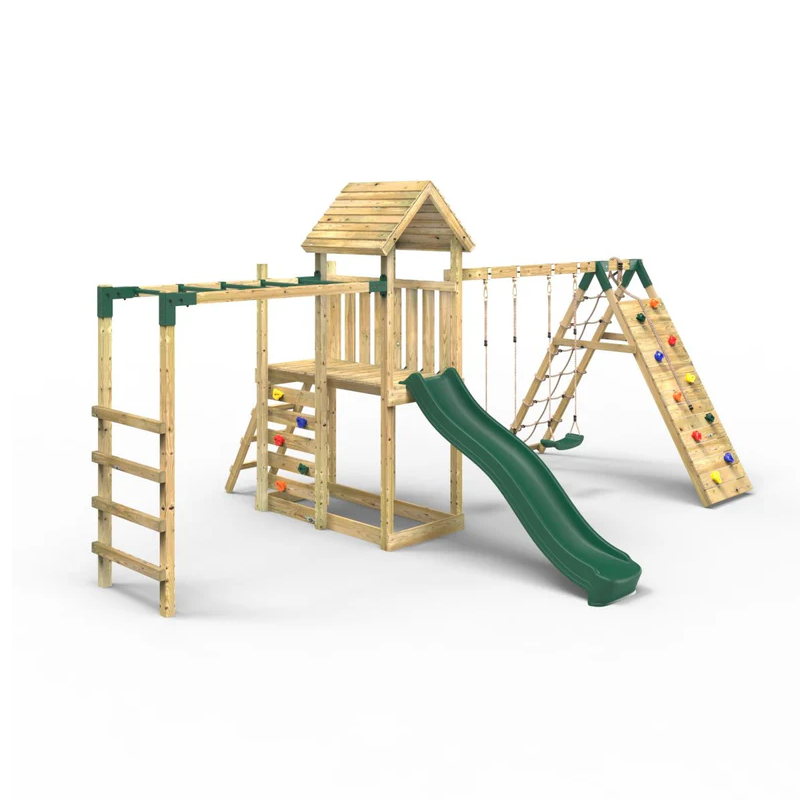
Extended Tower Climbing Frame withSwings & Slide

4 Piece Soft Play Climbing Set

Baby Foam Climbing Blocks

Soft Foam Ball Pit

outdoor Teeter-Totter
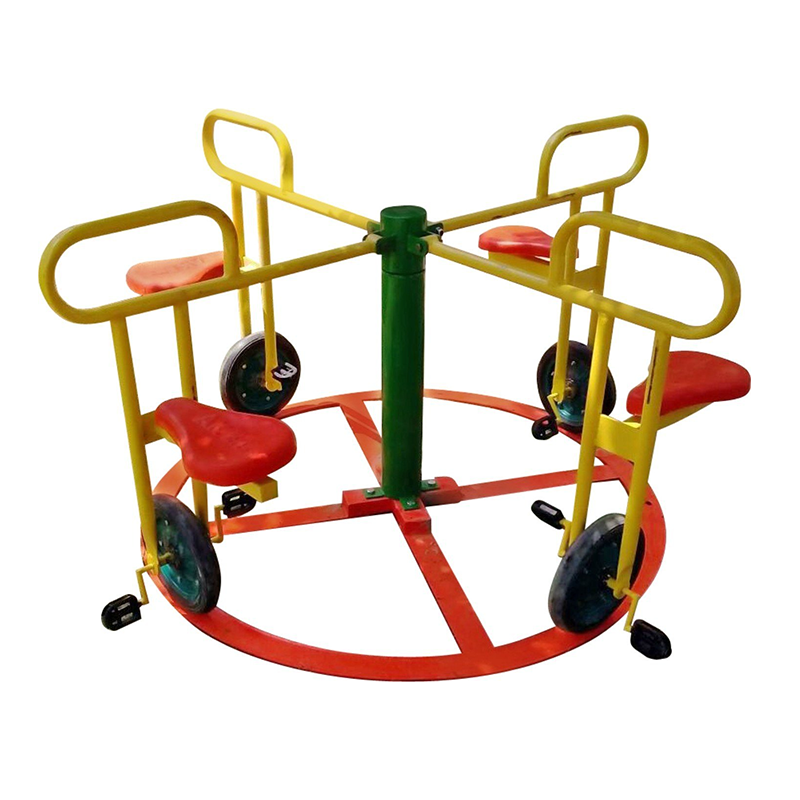
Outdoor Radical Rotator Merry Go Round

Playground Equipment

Toddler Climb Slide
Trusted Playground Equipment Supplier
At Winningkidz, we are committed to providing high-quality Playground Equipment that ensures both fun and safety. Our products meet the highest quality and safety standards, giving educators and parents peace of mind while children enjoy engaging, active play.
We offer personalized services, ensuring that each playground solution is designed to meet the specific needs of schools, parks, and communities. With a focus on education-centric design, our playgrounds foster children’s learning, creativity, and physical development.
We embrace sustainable practices in our Playground Equipment production, using eco-friendly materials that are both durable and responsible. By combining innovation with sustainability, we create play spaces that inspire the next generation while caring for the planet.
Materials Used in Playground Equipment
The materials used in preschool playground equipment play a crucial role in ensuring safety, durability, and maintenance requirements. Different materials have unique properties, affecting how they withstand outdoor conditions and heavy usage. Below, I’ll go over the most commonly used materials, their advantages, and key considerations.
-
Galvanized Steel Galvanized steel is strong and durable, perfect for preschool playgrounds as it can support heavy loads and withstand harsh weather conditions. It is zinc-coated to prevent rust but can get hot in the sun, often requiring additional shading or coating.
-
HDPE Plastic HDPE plastic is used for slides and interactive panels, known for its durability and color stability. It is impact-resistant and UV-stabilized to prevent degradation, offering a safer alternative to metals and woods that can splinter or overheat.
-
Rubber Rubber surfaces are common in playgrounds for their shock absorption qualities, often made from recycled tires. They provide safety under high-impact areas but can degrade with extreme weather exposure.
-
Aluminum Aluminum is lightweight and naturally rust-resistant, making it great for smaller preschool playground structures like railings. It doesn't need extra coatings, but it's less suitable for heavy-duty use compared to steel.
-
Wood Wood offers a natural look and is durable if treated or naturally resistant like cedar. It requires regular maintenance to prevent issues like splintering and rotting but blends well with outdoor environments.
-
Composite Materials Composite materials are a blend of wood fibers and plastic, creating a durable and low-maintenance option. They look like wood but resist moisture and decay, though they tend to be pricier than other materials.

What is Playground Equipment?
Playground equipment refers to the structures, installations, and interactive elements found in playgrounds, designed to provide children with opportunities for physical activity, social interaction, and creative play. These structures can range from simple swings and slides to elaborate climbing frames, obstacle courses, and themed play structures.
Modern preschool playground equipment is carefully designed with safety, durability, and child development in mind. It is commonly found in parks, schools, daycare centers, and residential communities. The primary goal of playground equipment is to encourage outdoor activity, enhance motor skills, and foster social interaction among children.
Benefits of Playground Equipment
Playground equipment plays a crucial role in a child’s development, offering physical, mental, and social benefits. It provides a safe and engaging space where children can explore, interact, and grow. Here’s how playground equipment benefits children:
Enhances Physical Development
Daycare playground equipment encourages children to move, jump, climb, and swing, which strengthens their muscles and improves coordination. Activities like climbing ladders and balancing on beams enhance both fine and gross motor skills, helping children develop strength and agility in a fun and engaging way.
Promotes Social Skills
Playgrounds provide a natural setting for children to interact, share, and cooperate with others. Whether taking turns on a slide or working together on a seesaw, kids learn important social behaviors such as teamwork, patience, and empathy, which help them build strong relationships.
Stimulates Cognitive & Creative Thinking
Playground structures encourage imaginative play and problem-solving. A child pretending to be a pirate on a play ship or navigating a climbing net as an explorer engages their brain in creative storytelling and strategic thinking, which enhances cognitive development.
Supports Emotional Well-being
Outdoor play allows children to release energy, reducing stress and anxiety. The joy of swinging high, the excitement of sliding down, and the thrill of conquering a climbing frame boost a child’s confidence and help them develop resilience in a safe and encouraging environment.
Encourages a Healthy Lifestyle
Playgrounds promote an active lifestyle by making exercise enjoyable. Running, jumping, and climbing help children maintain a healthy weight and improve cardiovascular fitness, fostering a lifelong habit of staying active instead of spending excessive time on screens.
Develops Sensory & Motor Skills
Many modern playgrounds include sensory play elements like textured panels, musical instruments, and spinning activities. These features enhance sensory perception, balance, and coordination, helping children develop essential skills that are crucial for daily activities and learning.
Safety Standards for Playground Equipment
Ensuring daycare playground equipment safety is essential for creating a secure environment where children can play, explore, and develop without unnecessary risks. By following established safety standards, using quality materials, and maintaining the equipment properly, playgrounds can significantly reduce the chances of injuries while maximizing fun and engagement.
-
1. Compliance with International Safety Standards Daycare playground equipment should meet safety regulations set by recognized organizations like the Consumer Product Safety Commission (CPSC) in the U.S., ASTM International (ASTM F1487), and the European Standard for Playground Equipment (EN 1176). These guidelines ensure that materials, design, and structural integrity meet strict safety requirements to minimize hazards.
-
2. Proper Surfacing to Prevent Injuries The surface beneath playground equipment should be impact-absorbing to reduce the severity of falls. Materials like rubber mulch, engineered wood fiber, and synthetic turf help cushion impacts better than concrete or grass, significantly lowering the risk of serious injuries.
-
3. Equipment Design and Structural Safety Playground structures must be designed with safety in mind, featuring smooth edges, sturdy guardrails, and non-toxic materials. Platforms above a certain height should have protective barriers, while all fastenings should be secure to prevent tipping, loosening, or collapsing.
-
4. Regular Inspection and Maintenance Frequent inspections help identify and fix potential hazards before they cause harm. Playground operators should check for broken or rusted components, loose screws, worn-out surfaces, and structural weaknesses. Routine maintenance extends the lifespan of equipment and ensures continued safety.
-
5. Adequate Spacing Between Equipment Proper spacing prevents overcrowding and accidents by ensuring that children have enough room to play safely. For example, swings should be positioned away from other structures to prevent collisions, and climbing frames should have sufficient clearance to avoid congestion.
-
6. Supervision and Safety Signage Active supervision by parents or caregivers plays a crucial role in preventing playground injuries. Additionally, clear safety signage should indicate age-appropriate zones, usage guidelines, and emergency contact information, helping children and guardians understand how to use the equipment safely.
Types of Playground Equipment
Playground equipment is divided into two main categories: indoor playground equipment and outdoor playground equipment. Both types of preschool playground equipment are essential for fostering well-rounded development in children, but selecting the right one based on the environment ensures children can maximize their play experiences, whether inside or outside.
Indoor Playground Equipment
Indoor playground equipment is designed for enclosed spaces such as malls, schools, daycare centers, and recreational centers. These play structures prioritize safety, space efficiency, and providing a stimulating environment for kids to play in a controlled indoor setting.

Soft Play Structures

Climbing Structures
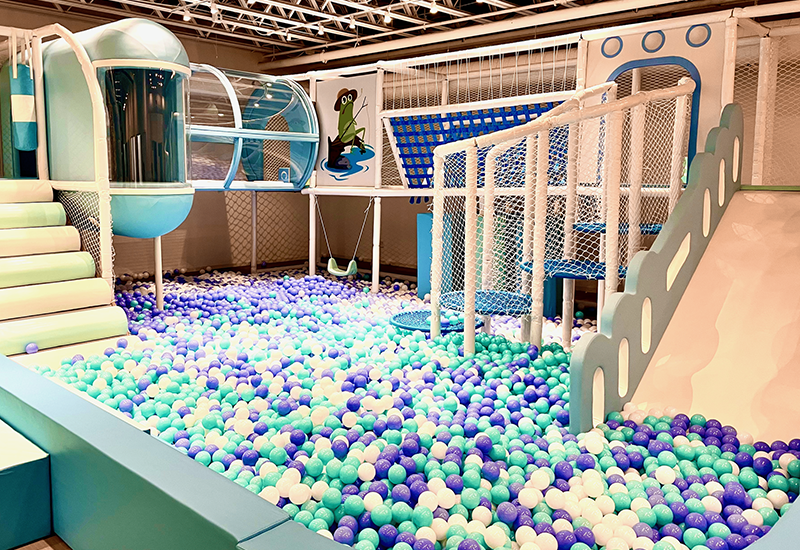
Ball Pits
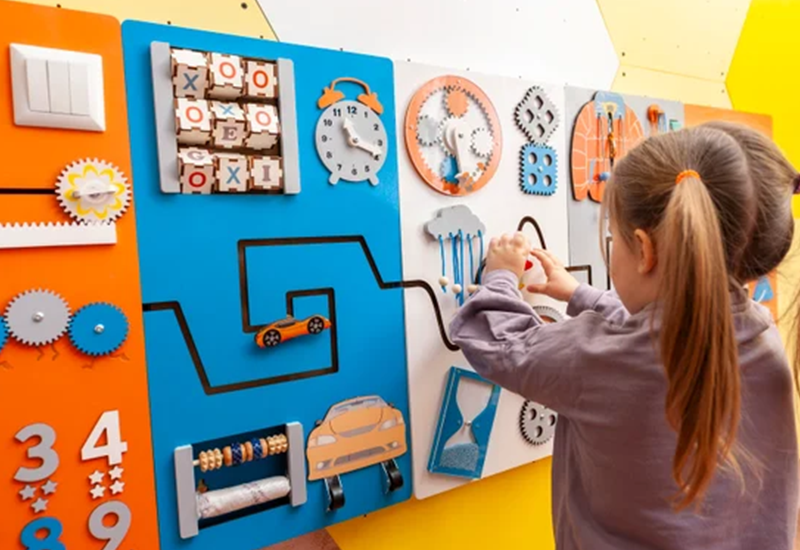
Interactive Play Panels

Trampoline Zones
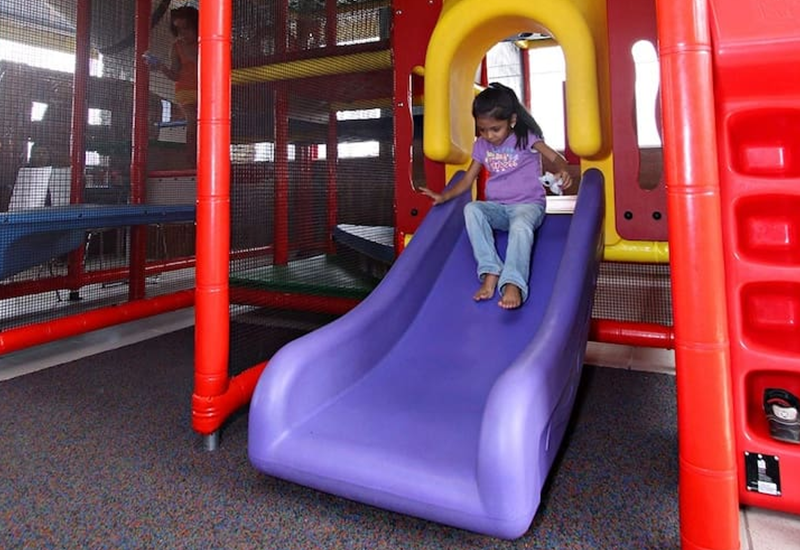
Slides
Outdoor Playground Equipment
Outdoor playground equipments are typically larger and designed to withstand the elements, encouraging physical activity, social interaction, and exploration. These play structures often include a combination of climbing, sliding, and swinging elements to engage children in active play.
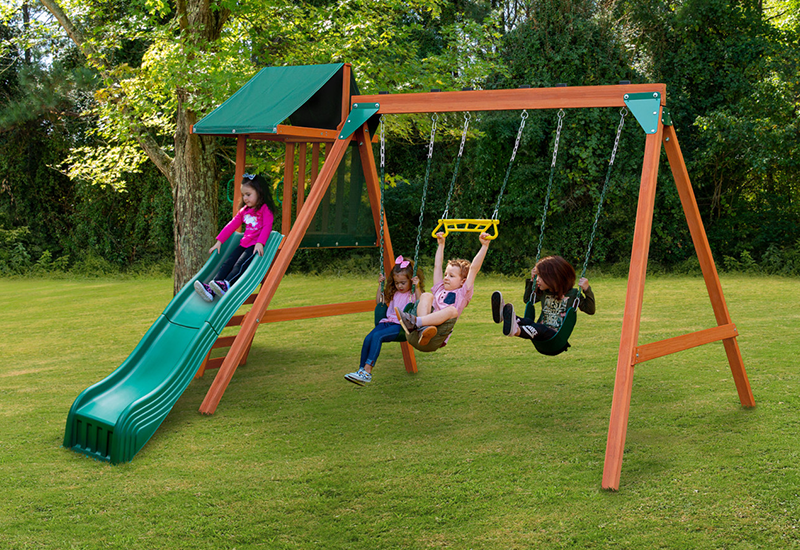
Swings

Merry-Go-Rounds and Spinners
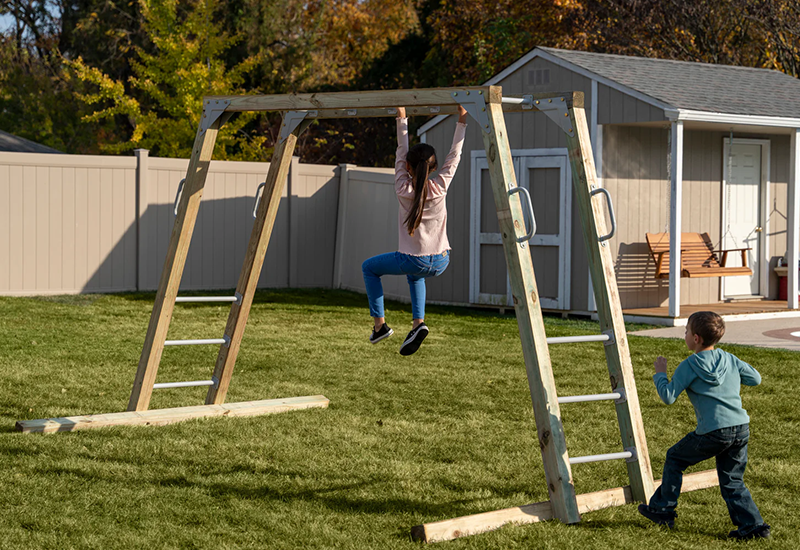
Monkey Bars
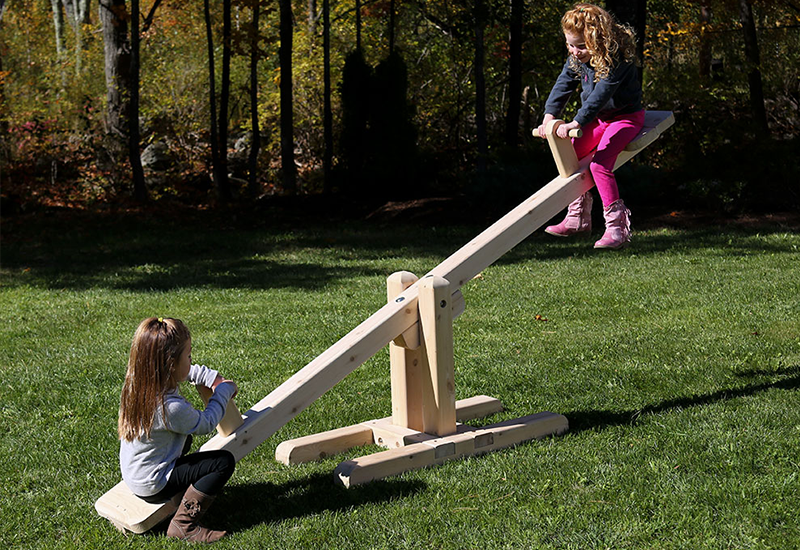
Seesaws
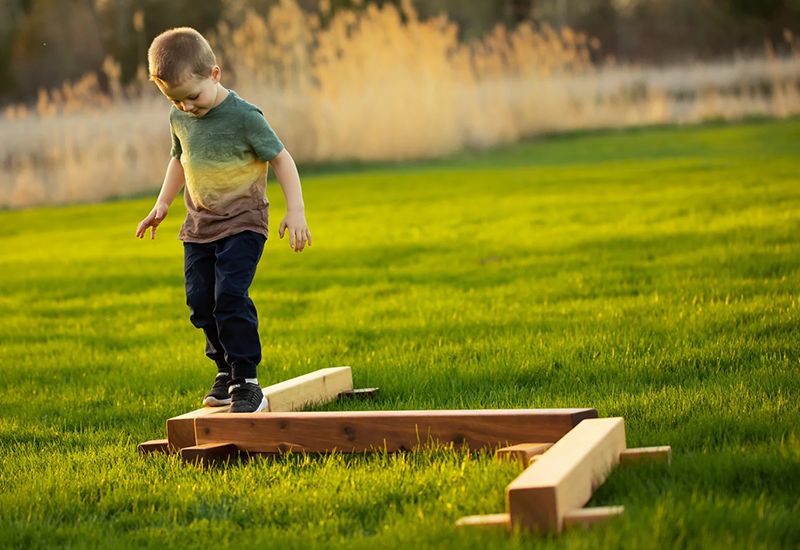
Balance Beams
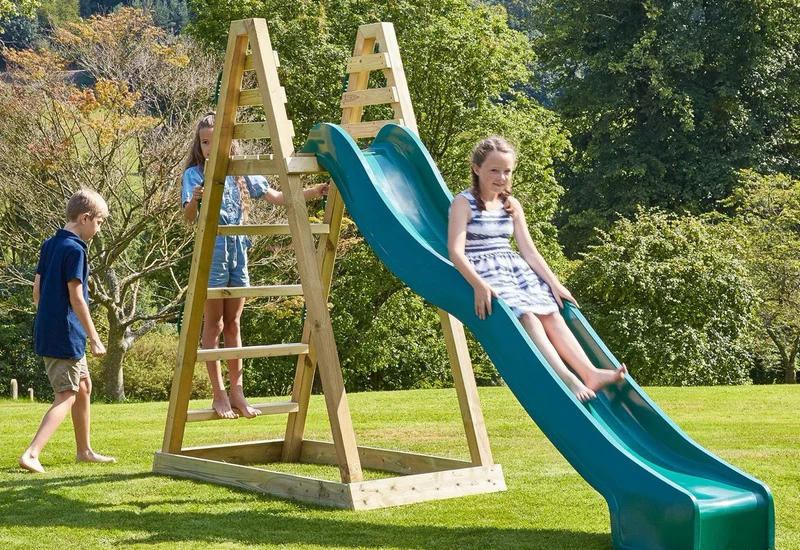
Slides
Choosing the Right Playground Equipment
Choosing the right preschool playground equipment ensures safety, fun, and developmental benefits for children. Factors like age-appropriateness, durability, and inclusivity help create an engaging and secure play space.
1. Consider the Age Group
Different age groups require different types of daycare playground equipment to ensure safety and engagement. For toddlers (ages 2-5), smaller slides, low climbing structures, and sensory play panels are ideal. Older children (ages 6-12) need more challenging structures like monkey bars, climbing walls, and rope bridges to develop strength and coordination.
2. Focus on Safety Features
Safety should always be a priority when selecting playground equipment. Look for rounded edges, non-slip surfaces, and sturdy construction materials. Additionally, ensure that the playground layout allows for safe spacing between equipment and includes shock-absorbing surfaces like rubber mats or mulch to minimize injury risks.
3. Choose Durable and Weather-Resistant Materials
Playground equipment should be made from high-quality materials that can withstand outdoor conditions. Metal structures are strong and long-lasting, while plastic components are lightweight and weather-resistant. Wooden playgrounds offer a natural aesthetic but require regular maintenance to prevent decay.
4. Encourage Inclusive and Accessible Play
A well-designed playground should be inclusive, allowing children of all abilities to play together. Consider installing wheelchair-accessible ramps, sensory play elements, and ground-level activities to accommodate children with disabilities. An inclusive playground fosters social interaction and provides opportunities for all kids to enjoy playtime.
5. Plan for Available Space and Layout
Before choosing playground equipment, assess the available space and layout. Large parks can accommodate extensive play structures, while smaller areas may require compact, multi-functional equipment. Ensure that pathways, seating areas, and shade structures are included to enhance the overall play experience.
6. Consider Budget and Maintenance Costs
Playground equipment is a long-term investment, so it's important to balance quality and cost. While high-quality materials may have a higher upfront cost, they often require less maintenance and last longer. Additionally, choose equipment with warranties and easy maintenance requirements to reduce long-term expenses.
Maintenance and Care of Playground Equipment
Maintaining playground equipment is vital to ensuring it remains safe and functional for children to use. Regular care helps prevent accidents, ensures longevity, and keeps the play area inviting. Here's a simplified approach to maintaining playground equipment:
-
Regular Inspections Check the equipment for any damage, such as cracks, rust, or loose parts. Regular inspections ensure that any safety hazards are addressed immediately.
-
Cleaning and Sanitizing Keep the equipment clean by washing it with mild detergent and disinfecting high-touch areas. This not only improves the look but also helps with hygiene.
-
Maintain Play Surfaces Ensure the surface underneath the equipment is even and provides proper shock absorption. Replenish materials like wood chips or rubber as needed.
-
Lubricate Moving Parts Lubricate parts like swing chains and slide surfaces to keep them smooth and prevent rust. This ensures that the equipment functions properly and safely.
-
Prompt Repairs If any part of the equipment is damaged or broken, fix or replace it immediately to prevent accidents.
-
Weather Considerations Inspect equipment after extreme weather to ensure it hasn’t been damaged by rain, snow, or intense sunlight.
Inclusive and Accessible Play
Playgrounds are becoming more inclusive, ensuring that children of all abilities can play together. Universal design principles are being implemented, making playgrounds accessible to children with disabilities. This includes features like wheelchair-accessible ramps, sensory play panels, and adaptive swings to ensure every child can engage with the equipment.


-
Nature-Inspired Playgrounds As environmental concerns grow, many new playground designs are being inspired by nature, often referred to as nature play or natural playgrounds. These playgrounds incorporate natural materials like wood, stone, and water, encouraging children to interact with their surroundings. These designs not only foster creativity but also allow children to connect with the natural world.
-
Technologically-Enhanced Play As technology continues to advance, future playgrounds are incorporating digital and interactive elements to stimulate children's creativity and cognitive development. Augmented Reality (AR), motion sensors, and interactive screens are being used to make play more engaging, offering educational opportunities and encouraging physical activity.
-
Sustainable and Eco-Friendly Materials Sustainability is a growing trend in playground equipment, with an increasing focus on using eco-friendly materials. Playgrounds are being built with recycled, recyclable, and non-toxic materials to reduce environmental impact. From recycled rubber surfacing to solar-powered lighting, these materials not only promote sustainability but also teach children the importance of environmental responsibility.
-
Adventure and Challenge Play Future playgrounds are increasingly focusing on creating challenging play environments that encourage children to push their limits and develop resilience. These spaces feature high-difficulty climbing walls, rope courses, and obstacle challenges designed to build strength, confidence, and problem-solving skills.
-
Multi-Generational Play Playgrounds are also evolving to accommodate not only children but entire families. Multi-generational playgrounds provide spaces where children, parents, and even grandparents can play together. These playgrounds offer equipment that encourages intergenerational interaction, fostering family bonding and physical activity for all ages.
Why Choose Us to Customize Your Playground Equipment
At WinningKidz, we specialize in designing and creating customizable playground equipment that meets the unique needs and preferences of your community, school, or park. Here’s why you should choose us for your playground project:
1. Tailored Design to Fit Your Vision
We work closely with you to understand your specific needs and vision for the playground. Our team of experts will design a custom layout that maximizes the available space while offering engaging play structures that are both fun and safe. Whether you’re interested in themed play areas, modular components, or integrating educational elements, we can bring your ideas to life.
2. High-Quality, Safe Materials
Safety is our top priority, and we use only high-quality, durable materials that meet or exceed industry standards. All of our customizable playground equipment is built with safety in mind, featuring non-toxic finishes, secure fastenings, and safety-tested components. With our equipment, you can rest assured that your playground will be a safe and enjoyable space for children to play.
3. Eco-Friendly Solutions
We are committed to sustainability and use eco-friendly materials like recycled plastics, sustainable wood, and non-toxic paints for all our equipment. Our environmentally conscious designs help reduce the carbon footprint while providing children with a safe and fun place to play. Choose us for a greener, more sustainable playground solution that’s good for both kids and the planet.
4. Flexible and Modular Systems
Our modular playground systems allow for easy updates and reconfigurations. As children grow or as needs change, you can easily swap out, upgrade, or add new components to keep the playground fresh and relevant. This flexibility ensures your playground remains engaging and adaptable for many years to come.
5. Full Support from Design to Completion
We provide comprehensive support throughout the entire process, from the initial design concept to the final completion of your playground. Our team works closely with you at every stage, ensuring your vision is brought to life seamlessly. With expert guidance and attention to detail, we make sure your playground is designed and customized to meet your needs, providing a smooth and stress-free experience from start to finish.
6. Affordable, Long-Term Investment
We offer competitive pricing without compromising on quality. Customizable playground equipment is an investment in your community’s future, and with our long-lasting, low-maintenance products, you’re getting a playground that will serve generations of children.
FAQ
What is the best material for playground equipment?
The best materials for playground equipment are usually steel, aluminum, and HDPE plastic. These materials offer durability, safety, and weather resistance. Wooden structures can also be used but require more maintenance.
How do I choose the right playground equipment for my kindergarten?
Choosing playground equipment depends on the age group, available space, and safety requirements. Make sure the equipment is designed for the appropriate age and provides varied activities for physical and cognitive development.
How often should playground equipment be inspected?
Playground equipment should be inspected regularly—at least once a month—by a qualified person. After heavy use or after severe weather, inspections should be more frequent to ensure safety.
What age group is suitable for a specific playground equipment?
Different equipment is designed for different age groups. For example, swings and climbing structures are suitable for children aged 5-12, while smaller slides and balance beams are best for children aged 2-5.
Can playground equipment be installed on any surface?
While playground equipment can technically be installed on any surface, it’s best installed on surfaces that offer a cushioning effect, such as rubber mats, artificial turf, or wood chips, to help prevent injuries.
Can playground equipment be installed in a small space?
Yes, many playground equipment pieces are designed specifically for smaller spaces. Compact climbing walls, mini slides, and other smaller structures can be used to create a fun and functional play area in limited spaces.
How long does playground equipment last?
High-quality playground equipment can last 10-15 years or more, depending on the materials and maintenance. Regular care, cleaning, and inspection are key to extending the life of your equipment.
How do I ensure playground equipment is safe for children?
To ensure safety, purchase equipment from certified suppliers, ensure it’s age-appropriate, have it installed correctly, and maintain it regularly. Proper supervision during play is also important.

